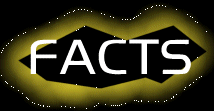 |
 |
| Q:
Why are 'Chinos' so called? A: The word was at first a derogatory term for the chinese used by USsoldiers serving in China before World War II. It was then applied to thew cheap cotton clothes worn by coolies and later to the men's own cotton summer uniforms. After the war it was transferred to civilian use by Army surplus stores and is noiw applied to a style of trousers made of cotton twill, with tapered legs and a belt at the back. It became associated with Ivy League-style dress, as worn by members of such prestigious universities as Harvard, Yale, Princeton and Cloumbia, so it's an unusual example of a word which began by being derogatory and has now been upgraded. |
|||||||
Q: Do
magnets work in space? If so, where do they point? A magnetic field has sense of direction, and magnets tend to line up with that direction. Which way a magnet pointsdepends on which direction the magnetic field points in the given place. In the case of a terrestrial compass this will generally be the direction of the Earth's magnetic field, but this can change if you place another magnet nearby. Large astronomical bodies(such as the Earth and the Sun) tend to produce magnetic fields that prevade the space sround them. A magnet in space would feel the Earth's magnetic field if it were near the Earth and would tend to point towards the magnetic North pole, just as it would have on the Earth's surface. The strength of the field drops off as you go further away from the Earth so, at sufficiently large distances, the fields produced by other bodies can affect the magnet. Near the Sun, for example, the Earth has a negligiblee effect but the Sun's own magnetic field is stronger, so the magnet would point towards the Sun's North pole. Farther afield, away from any stars, the Milky Way itself contains a magnetic fiels caused by the dynamo effect of galactic rotation. The magnet would therefore tend to line up in whatever direction this rather complicated galactic field points. |
 |